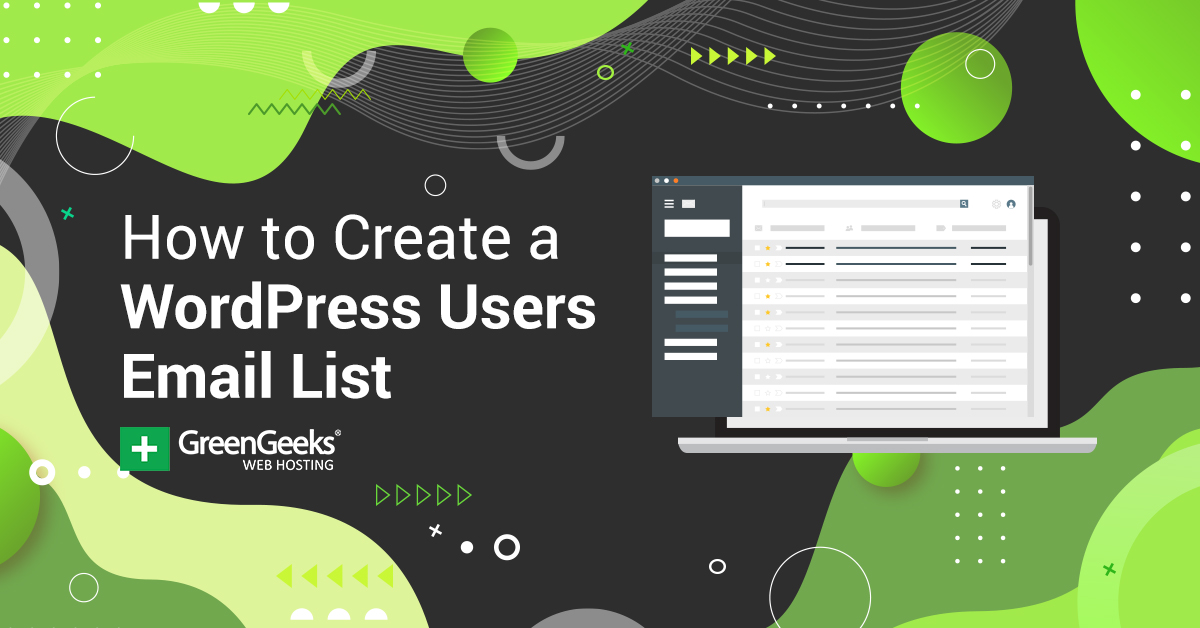Top Ideas On Picking A Hospital CEO Email List
Wiki Article
What Factors Should I Consider When Buying Cpa Email Lists?
It is important to take into consideration a variety of aspects when purchasing an CPA email list. This will guarantee that the list you buy is of high quality and is in line with legal requirements and applicable to your goals for business. Consider: 1. Data Quality and Accuracy
Verify where the data is sourced From. Reputable suppliers usually collect information from directories of professional, databases as well as trade associations. Avoid lists that are created by scraping or other untrustworthy sources. They could contain outdated information.
Verification Process: Make sure the email list is current and recently updated. This will help reduce bounce rate and ensure you reach valid, active email addresses. You should ask how frequently the list is updated, as CPAs frequently change firms and positions.
Segmentation/Filters CPA Lists should have filters and segmentation options. CPA List should include options to be segmented by geographical location (city or province and country) and specialization (e.g. accounting auditing, financial planning, or accounting) as well as the years in operation, or the size of the firm. These factors can be used to improve the relevance of marketing campaigns, allowing more precise selection of.
2. Legal Regulations
Data Privacy Laws : Ensure that you are in compliance with local data privacy laws, including the California Consumer Privacy Act and the General Data Protection Regulation. Lists should only contain email addresses that have been obtained legally, and with consent.
CAN-SPAM Act Compliance: For U.S. email campaigns, the list must be in compliance with the CAN-SPAM Act which regulates commercial email communications. It also includes the provision of opt-out mechanisms and the use of untrue content or subject lines. Failure to comply could result in fines or legal issues.
Opt-In Consent: Make sure that you have obtained the email address via an opt in consent. That is, recipients who have signed a consent form agree to be targeted by marketing from third parties. This reduces the risk of complaints about spam. Also, it increases engagement.
3. Provider Reputation
Check the reputation of the service. Check out reviews, testimonials as well as case studies to find out what other customers ' opinions are. The information from established suppliers is more reliable and accurate.
Transparency: The service provider must be clear about how the data was obtained and the frequency at which it is updated. It's a warning sign when the service provider isn't able to explain their methods clearly.
Customer Support: A reliable customer support service is essential for those who require help with customizing lists, troubleshooting or understanding the regulations for compliance. Support can be a time-saver and help you save time in the campaigning process.
4. Cost and ROI
Pricing models. Different service providers offer different pricing structures. Certain charge per person while others charge a flat-fee or a subscription. Compare the costs and the return you can expect, while making sure to balance price with the quality of the list.
Ask the provider if they offer a refund policy or replacement policy if the majority of email addresses are incorrect or invalid. A guarantee can give security.
Price is not the same as. value: Don't only focus on the price. The list that is less expensive may be attractive, but it could result in low engagement or high bounce rates if not of high-quality. Make sure to choose lists with high quality, data accuracy, and segmentation worth.
5. Data Usage and ownership
Single-Use or Multiple-Use? Clarify if you are buying the list only for one use or if the information is yours and you can utilize it for ongoing campaigns. Lists for single-use may be less expensive, but owning the list lets you use it to run long-term campaigns.
Exclusive vs. shared lists: Make sure you know if your email list is only for you or if other buyers are also able to access it. A shared list could create a sense of fatigue among the recipients because they have been bombarded by marketing emails.
6. Data Integration and Format
CRM Compatibility. Be sure that the list you send out is in a format that is compatible with the CRM software that you use, or to promote email marketing, such as CSV. It permits easy importation and managing your data.
Simple of Use: Examine how easy it is to sort and manage your data once it's been added to your system. A well-organized database can improve the effectiveness of targeting and personalization.
7. Ethical aspects
Relevance: As CPAs are extremely busy, it is crucial to ensure that they are receiving content that is relevant and valuable. Beware of sending emails that are irrelevant and could harm your brand or result in complaints about spam.
Avoid sending too many emails Limit the number of times you contact your contacts. Over-communication may lead to complaints about spam and unsubscribes which could harm the reputation of the sender.
You can draw your conclusions by clicking the link below.
Consider the accuracy of information, legal compliance, as well as the credibility and experience of your CPA email service provider to ensure you are getting value for your the money you spend. Targeting, segmentation and ethical practices will boost engagement and increase ROI while maintaining the image of your company. Follow the top cpa email list for blog tips.

What Are The Things I Should Be Thinking About Before Buying An Appending For Data?
If you are considering a data appending service, it's crucial to evaluate several factors to ensure that the service will improve the accuracy of your existing data while maintaining accuracy, compliance, and moral standards. Data appending involves enriching databases by adding new or incomplete information, such as phone numbers, email addresses, or demographics. Below are key considerations when you purchase data appending: 1. Data accuracy and quality
Data source: Make sure that the data appending service provider has reliable, top-quality sources, such as verified database or public records. Trustworthy providers collect data from reliable sources to make sure that the information appended is accurate and relevant.
Verification Process – Check to see if the provider has an effective process for validating and confirming the data you have added. This will ensure that the information is accurate, up-to-date and pertinent to your needs and applicable. Providers must provide regular clean-up and updates to the data as part of their service.
Match Rates: Different companies offer different match rates. It is a percentage of your records that could be improved by additional information. When you are striving for accuracy, don't compromise quality for more high match rate.
Customization: Based on your specific requirements, ensure the company offers customizable data append solutions. You might want to include different types data, like demographic or firmographic data and behavioral data, as well as contact information.
2. Data Security and Privacy
Compliance with Regulations – Data appending is a service which involves handling sensitive personal information. Therefore, it's important to ensure that you are in compliance with privacy laws such as the California Consumer Privacy Act and General Data Protection Regulation. The data that is appended has to be gathered, used, and processed in a legal manner to be protected from penalties.
Consent management: Make sure that the data you are collecting comes from people who gave explicit consent to share their personal information. Beware of data sources that are based on suspect practices, or those that violate the privacy of users. This could result in legal and ethical issues.
Data Security: Ensure the service provider has strict security measures for data to protect the confidentiality and integrity of your database and the appended information. Secure data transfers, encryption and access control are all part of this.
3. Provider Reputation
Reputable Vendors: Select an organization with a solid reputation for providing accurate and compliant services. You can assess their previous performance by reviewing testimonials, case studies, and even reviews. A well-established provider is more likely than not to provide high quality services or ensure legal compliance.
Some companies specialize in specific areas like healthcare, finance or retail. It is important to choose an expert vendor and knowledgeable in your specific field if you are in a particular niche. They could provide more customized solutions that align with your particular needs.
4. Cost and Return on Investment (ROI).
Pricing Models. Data appending service providers offer a range of pricing options. These include flat fees or pricing per record. It is essential to understand the structure, and how it is within your budget. Beware of low-cost alternatives with poor data.
Calculate potential returns on investment by appending information. A good service can increase engagement, increase conversions, and boost overall performance. Compare the cost of the service to the anticipated benefits of the enriched, more actionable data.
5. Data Types with Optional Appending Options
Types of data: Think about the kinds of data you want to append to your database. Common types include:
Email addresses: essential for emails.
Phone Numbers are vital for sales or customer service.
Demographic information is used to segment and tailor marketing.
Firmographic data is crucial for B2B marketers looking to target businesses based on the amount of revenue, employees' size or by industry.
Certain providers permit the appending of social profiles, which is useful in social and digital marketing.
6. Data Integration and Format
Compatibility: Make sure the data that you are adding is provided in a format that is compatible with the Customer Relationship Management (CRM) software, Marketing Automation Software, or other tools you utilize. CSV or Excel formats, as well as API integrations, are all common formats. These should allow data to be imported and used in a simple manner.
Data Cleaning and Enrichment Services: As part of the appending service A reputable company will also provide data cleansing services. This includes removing inaccurate data, removing redundant records, and eliminating old records. Data enrichment involves more than simply adding information. It improves the quality of your data.
7. Ethical Aspects
Transparency: The service provider must be clear about the source of data that appended from and how it's collected. Data appending companies that adhere to ethical guidelines will have guidelines regarding the sources of data as well as its use.
Be aware that the addition of contact information, such as telephone numbers or email addresses shouldn't lead to unwanted or intrusive practices. Make use of appended data in a responsible manner. Follow guidelines to contact to consumers, offer opt-out options, and respect consumer privacy.
Conclusion
When purchasing data appending services, focus on quality of the data legal compliance, as well as the reputation of the provider. Select services that are secure, verified data that is compliant with privacy regulations such as GDPR and CCPA. Additionally, ensure the appended data is compatible with your existing systems and take into consideration the long-term ROI of investing in accurate, rich data. Appending data can improve your business and marketing performance by choosing the right supplier. Have a look at the pro data appending services for more tips.
